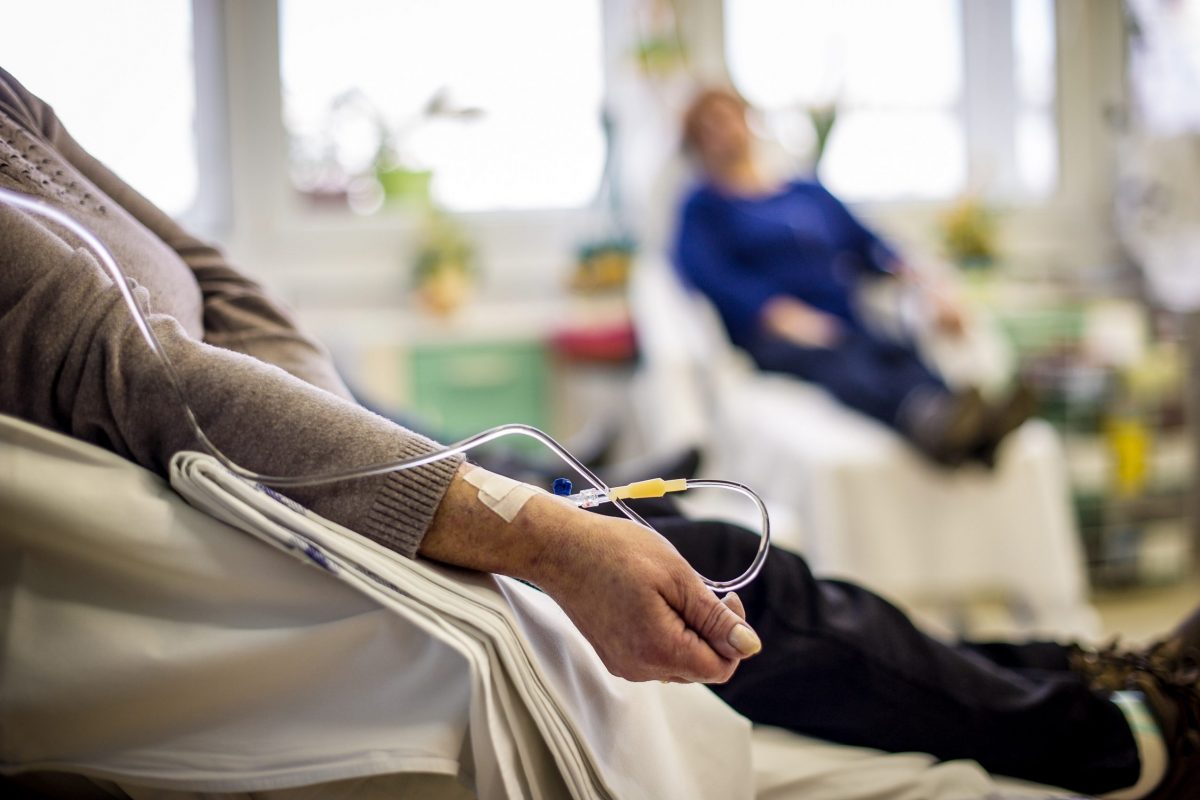Introduction
Pancreatic cancer is the 4th deadliest cancer in Europe, with more than 95% of those affected dying from the disease, and is set to be the second greatest cause of death from cancer by 2020. This is mainly due to the lack of awareness and prioritisation of this disease that has a median survival time of three months for a diagnosed person. Due to the high mortality of the disease and thus the lack of survivors, there are only six pancreatic cancer patient organisations in Europe. Although these organisations provide useful information tools to patients, they only cover a limited amount of countries. That is why, ECPC, as an umbrella organisation, also wants to bring its contribution in raising awareness about this deadly type of cancer also known as “the forgotten cancer”.
The colour for pancreatic cancer is purple and the chosen symbol is a kite as it is a simple symbol of hope. A flying kite has the power to rise above an overwhelming obstacle and can be seen by everyone.
World Pancreatic Cancer Coalition
The European Cancer Patient Coalition is a member of the World Pancreatic Cancer Coalition.
The World Pancreatic Cancer Coalition co-ordinates World Pancreatic Cancer Day. A ”Day of action, a world of difference”. The idea behind World Pancreatic Cancer Day is uniting the planet to support a common goal. Knowledge is one of our best tools in the fight against pancreatic cancer. By providing education about the disease and increasing awareness of its devastating impact, we hope to change the outlook for patients and families.
In November of each year one day is dedicated to pancreatic cancer. People can come together to draw attention to pancreatic cancer and highlight the need for greater awareness, funding, and research. By standing in unison against this deadly disease, we hope to save lives and create a brighter future for people around the globe.
World Pancreatic Cancer Day is on the 17th of November.
The European Cancer Patient Coalition is a member of the World Pancreatic Cancer Day Committee for the year 2016-2017, The main goal of the campaign is to raise global awareness of pancreatic cancer and mobilise the world to join the fight against pancreatic cancer. The theme is: ‘United, we are stronger in our fight against this disease and we are In It Together’.
www.worldpancreaticcancercoalition.org
The World Pancreatic Cancer Coalition is sponsored by Celgene, Shire, and Halozyme
Pancreatic Cancer Europe
Pancreatic Cancer Europe (PCE), a multi-stakeholder platform that started from a desire to build a network of experts, patients, policy makers and indust>ries to discuss means of tackling pancreatic cancer;
Pancreatic Cancer Europe is composed of 40 national and European experts (academics, patients, clinicians, researchers, industrials), and championed by three Members of the European Parliament (Françoise Grossetête, EPP, France, Philippe Juvin, EPP, France and Daciana Octavia Sârbu, S&D, Romania) and is committed to raising awareness around pancreatic cancer in view of improving standard of care, diagnosis and data collection for patients suffering from this deadly cancer across Europe. The major consensus of the Platform is to ensure that pancreatic cancer is no longer a “forgotten cancer” through the creation and distribution of informative material tailored to educate the public, medical professionals and policy makers.
Since its foundation, PCE has made significant advances: “10 key facts” and “10 warning signs of PC” are documents that inform the public about the basics of pancreatic cancer and the low lying symptoms to watch out for. “Think PC” is directed at healthcare professionals and in particular, GPs to watch out for combinations of symptoms that could indicate pancreatic cancer. The “PC Declaration” signed by Members of the European Parliament acts as a commitment to put pancreatic cancer on the political agenda, to create policies specific to the challenges posed by pancreatic cancer and to take concrete steps on the road to better care for patients.
The work has now begun on disseminating the materials throughout the Member States and reaching people at national level through national allies/organisations and through the PCE website which acts a portal for those seeking more information on pancreatic cancer. Most of the materials have been translated in order to facilitate this process and maximise the impact.
Within the PCE, ECPC is chairing the work stream that coordinates and supports national activities as well as the uptake of the materials produced by Pancreatic Cancer Europe. With coordinated actions at national level designed to raise awareness and increase early diagnosis we want to ensure that pancreatic cancer is “forgotten no more”.
Involvement of ECPC member organisations
Romanian member organisation “Sfanta Ana”, chaired by Bogdana Costoiu, joined our awareness efforts and lit up in purple, the colour of pancreatic cancer, the GATE OF KISS in Targu-Jiu.
ECPC member FAVO, lit up in purple the Sforzesco Castle, symbol of Milan. K.E.F.I. members from Greece were also deeply involved, organising in 2015 an event as well as a press conference on pancreatic cancer.
Pancreatic Cancer Europe is financially supported by Celgene, Shire, and Mylan.
Notes
- Pancreatic cancer has the lowest survival rate of all cancers, just 2-10% of those diagnosed survive for five years1;
- Survival has improved for most cancers over the last 40 years but not for pancreatic cancer2;
- Early diagnosis is key: patients who are diagnosed in time for surgery have a much higher likehood of surviving 5 years3;
- Pancreatic cancer has been underfunded for decades and receives less than 2% of overall cancer research funding4;
- Pancreatic cancer is the 7th most common cause of cancer-related death across the world5;
- Pancreatic cancer is nearly always diagnosed too late making the overall median survival for a person diagnosed with metastatic pancreatic cancer 4.6 months6;
- Studies show that death rates for pancreatic cancer are increasing while for most other cancers they are decreasing7.
Downloads
“Parliament Magazine” special supplement on Tackling Pancreatic Cancer
Initiatives to raise awareness on pancreatic cancer across Europe

